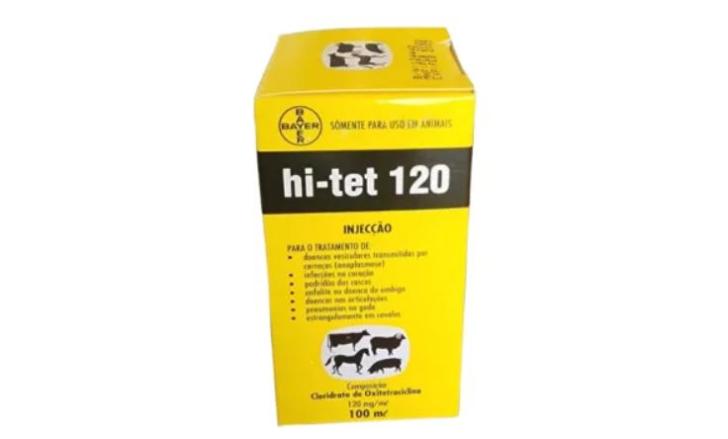News / National
German firm wins Zimbabwe trademark dispute
03 Jul 2025 at 08:22hrs |
0 Views

German pharmaceutical giant Bayer Aktiengesellschaft has emerged victorious in a landmark trademark dispute after the High Court of Zimbabwe, sitting as the Intellectual Property Tribunal, ruled in its favour against local company Milborrow Animal Health Zimbabwe.
The case, which was heard by Judge President Mary Zimba-Dube alongside two assessors, reversed a controversial 2022 decision by the Registrar of Trade Marks, marking a major turn in a years-long legal battle over competing pharmaceutical trademarks.
At the centre of the dispute were the rights to the HI-TET and HITET trademarks, both listed under Class 5 for veterinary medicinal products. Bayer challenged the Registrar's earlier decision to expunge its HI-TET trademark, arguing that it held valid registration and had demonstrated prior commercial use in Zimbabwe stretching back to 1980.
Milborrow, which registered the HITET mark in 1989, argued that Bayer's mark was irregularly registered in 2009 and sought to defend its own rights under the Trade Marks Act, claiming the lapse in its renewal was due to procedural failures by the Registrar.
In her judgment, Justice Zimba-Dube highlighted that the process for trademark renewal is driven by the Registrar, and it was the Registrar's duty to issue proper notices of expiration. She noted that this failure created a legal void which allowed the HITET mark to remain on the register despite Milborrow not paying renewal fees.
However, the court found that Milborrow acted in bad faith by registering the HITET mark after having distributed Bayer's HI-TET products for years. Evidence presented in court showed that Bayer's HI-TET trademark had long-standing registration with the Medicines Control Authority of Zimbabwe (MCAZ) since 1980, which the court ruled constituted bona fide commercial use.
"The market authorisation of MCAZ is a sine qua non (essential condition) of use of a trademark in Class 5 products," Justice Zimba-Dube stated. "Bayer's continuous renewal of its MCAZ registration demonstrated genuine use of the trademark."
The Tribunal dismissed Milborrow's counterclaim of ownership, ruling that its registration of HITET was opportunistic and a breach of ethical business conduct. "Milborrow's conduct falls far short of the standards of acceptable commercial behaviour," the court stated.
The judgment also stressed the potential harm caused by confusion in the pharmaceutical market, noting that the coexistence of similar trademarks could undermine public health.
"The slightest confusion in the market regarding the identity of pharmaceutical medicines will necessitate removal of a mark to avoid likely detrimental consequences," said the Judge President.
The Tribunal ordered the expungement of Milborrow's HITET trademark from the national register and reinstated Bayer's HI-TET trademark. Bayer was also awarded costs in the matter.
Refusing to accept the ruling, Milborrow, represented by attorney Moses Nkomo of Donsa-Nkomo and Mutangi law firm, has since filed an appeal with the Supreme Court, arguing that the High Court erred and seeking to overturn the decision.
As the legal saga continues at the highest judicial level, the case is being closely watched for its implications on trademark protection, commercial ethics, and the regulation of intellectual property in Zimbabwe's pharmaceutical sector.
The case, which was heard by Judge President Mary Zimba-Dube alongside two assessors, reversed a controversial 2022 decision by the Registrar of Trade Marks, marking a major turn in a years-long legal battle over competing pharmaceutical trademarks.
At the centre of the dispute were the rights to the HI-TET and HITET trademarks, both listed under Class 5 for veterinary medicinal products. Bayer challenged the Registrar's earlier decision to expunge its HI-TET trademark, arguing that it held valid registration and had demonstrated prior commercial use in Zimbabwe stretching back to 1980.
Milborrow, which registered the HITET mark in 1989, argued that Bayer's mark was irregularly registered in 2009 and sought to defend its own rights under the Trade Marks Act, claiming the lapse in its renewal was due to procedural failures by the Registrar.
In her judgment, Justice Zimba-Dube highlighted that the process for trademark renewal is driven by the Registrar, and it was the Registrar's duty to issue proper notices of expiration. She noted that this failure created a legal void which allowed the HITET mark to remain on the register despite Milborrow not paying renewal fees.
However, the court found that Milborrow acted in bad faith by registering the HITET mark after having distributed Bayer's HI-TET products for years. Evidence presented in court showed that Bayer's HI-TET trademark had long-standing registration with the Medicines Control Authority of Zimbabwe (MCAZ) since 1980, which the court ruled constituted bona fide commercial use.
"The market authorisation of MCAZ is a sine qua non (essential condition) of use of a trademark in Class 5 products," Justice Zimba-Dube stated. "Bayer's continuous renewal of its MCAZ registration demonstrated genuine use of the trademark."
The Tribunal dismissed Milborrow's counterclaim of ownership, ruling that its registration of HITET was opportunistic and a breach of ethical business conduct. "Milborrow's conduct falls far short of the standards of acceptable commercial behaviour," the court stated.
The judgment also stressed the potential harm caused by confusion in the pharmaceutical market, noting that the coexistence of similar trademarks could undermine public health.
"The slightest confusion in the market regarding the identity of pharmaceutical medicines will necessitate removal of a mark to avoid likely detrimental consequences," said the Judge President.
The Tribunal ordered the expungement of Milborrow's HITET trademark from the national register and reinstated Bayer's HI-TET trademark. Bayer was also awarded costs in the matter.
Refusing to accept the ruling, Milborrow, represented by attorney Moses Nkomo of Donsa-Nkomo and Mutangi law firm, has since filed an appeal with the Supreme Court, arguing that the High Court erred and seeking to overturn the decision.
As the legal saga continues at the highest judicial level, the case is being closely watched for its implications on trademark protection, commercial ethics, and the regulation of intellectual property in Zimbabwe's pharmaceutical sector.
Source - The Herald
Join the discussion
Loading comments…

































